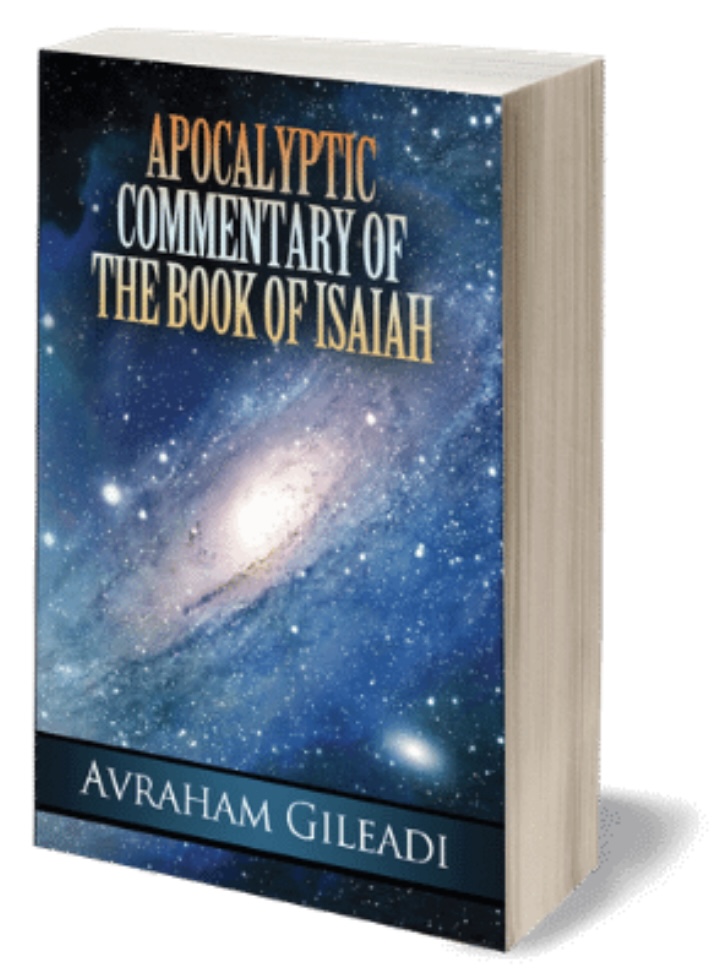A major theme of Isaiah’s prophecy that merits attention is the “restitution” or “restoration” of all things “spoken by the mouth of all his holy prophets” (Acts 3:21). From the rebirth of God’s covenant people to divine kingship to Paradise on the earth—all restoration is included.
Jesus’ saying that “Elias truly shall come first and restore all things”—in the pattern of John the Baptist, forerunner of his first coming (Matthew 17:10–13)—tells us that the name “Elias” is a title or alias of a forerunner and isn’t necessarily literal to the prophet Elias or Elijah.
To complicate things further, Isaiah calls the person who restores all things and who acts as forerunner to the coming of Israel’s God, God’s “servant” and “David.” Secondarily, he compares him to savior types such as Moses, David, Hezekiah, Cyrus, and Isaiah himself.
This use of ancient personas as types or models of God’s end-time servant fills out the bigger picture of the “restoration of all things.” Because Isaiah draws on the past to predict the future, he combines the roles and character traits of Israel’s former heroes to portray the servant.
Isaiah even resorts to keywords such as God’s “arm” to depict the servant as a new Moses who leads a new exodus of God’s people out of bondage to promised lands. As they did in Moses’ and Joshua’s day, they traverse mountains, drink water from springs, and inherit estates.
Isaiah 51:9–11Awake, arise; clothe yourself with power,
O arm of Jehovah!
Bestir yourself, as in ancient times,
as in generations of old.
Was it not you who carved up Rahab,
you who slew the Dragon?
Was it not you who dried up the sea,
the waters of the mighty deep,
and made of ocean depths a way
by which the redeemed might pass?Let the ransomed of Jehovah return!
Let them come singing to Zion,
their heads crowned with everlasting joy;
let them obtain joy and gladness,
and sorrow and sighing flee away.
Isaiah 49:6, 8–12He said: It is too small a thing
for you to be my servant
to raise up the tribes of Jacob
and to restore those preserved of Israel.
I will also appoint you to be a light to the Gentiles,
that my salvation may be to the end of the earth. . . .I have created you and appointed you
to be a covenant of the people,
to restore the land and reapportion the desolate estates,
to say to the captives, Come forth!
and to those in darkness, Show yourselves!
They shall feed along the way
and find pasture on all barren heights;
they shall not hunger or thirst,
nor be smitten by the heatwave or the sun:
he who has mercy on them will guide them;
he will lead them by springs of water.All my mountain ranges I will appoint as roads;
my highways shall be on high.
See these, coming from afar,
these, from the northwest,
and these, from the land of Sinim.
God’s baring his “arm” signifies his empowering his servant as a forerunner of “salvation”—an alias or codename of Israel’s God. Because God had scattered his people throughout the earth when they rebelled, the servant’s end-time mission of restoring Israel is a worldwide event.
Isaiah 52:7–8, 10How comely upon the mountains
are the feet of the messenger announcing peace,
who brings tidings of good,
who heralds salvation,
saying to Zion, Your God reigns!Hark! Your watchmen lift up their voice;
as one they cry out for joy:
for they shall see eye to eye
when Jehovah reestablishes Zion.
Jehovah has bared his holy arm
in the eyes of all nations,
that all ends of the earth may see
our God’s salvation.
The release of Israel’s scattered remnants from a captive condition, their return to promised lands in a new exodus, and the rebuilding of Jerusalem and the temple—all vital to the “restoration of all things”—requires extraordinary manifestations of God’s power in an end-time context.
To portray the servant’s many restorative roles, therefore, Isaiah creates composites of types. As a new Moses—God’s “shepherd” (Isaiah 63:11–13)—the servant “says to the deep become dry.” As a new Cyrus, he decrees rebuilding the Promised Land and the city of Jerusalem.
Isaiah 44:26–28Who fulfills the word of his servant,
accomplishes the aims of his messengers,
who says of Jerusalem, It shall be reinhabited,
and of the cities of Judah, They shall be rebuilt,
their ruins I will restore,
who says to the deep, Become dry;
I am drying up your currents,
who says of Cyrus, He is my shepherd;
he will do whatever I will.
He will say of Jerusalem that it must be rebuilt,
its temple foundations relaid.
A similar composite of types portrays God’s end-time servant as a new David—God’s “anointed” (Psalms 132:17). As a new Cyrus, the servant reconquers the world from its evil overlords. He releases Israel’s captives and facilitates their return from exile to promised lands.
Isaiah 45:1–2Thus says Jehovah to his anointed,
to Cyrus, whom I grasp by the right hand,
to subdue nations before him,
to ungird the loins of rulers,
opening doors ahead of him,
letting no gates remain shut:
I will go before you and level all obstacles;
I will break in pieces brazen doors
and cut through iron bars.
Isaiah 45:13It is I who rightfully raise him up,
who facilitate his every step;
he will rebuild my city and set free my exiles
without price or bribe, says Jehovah of Hosts.
These literary patterns show that the name “Cyrus” in Isaiah’s prophecy was never intended to be purely literal. Rather, it was intrinsic to the way composites of types reveal that in order to “restore all things” God’s end-time servant takes on many roles Israel’s heroes performed.
God doesn’t appoint his individual servant, however, until his collective “servant”—his end-time people as a whole—have sunk into idolatry. Those who spurn the servant’s call to repent of their sins and participate in Israel’s restoration must on that account perish with the wicked.
Isaiah 42:17–20Those who trust in idols
and esteem their images as gods
shall retreat in utter confusion.
O you deaf, listen; O you blind, look and see!
Who is blind but my own servant,
or so deaf as the messenger I have sent?
Who is blind like those I have commissioned,
as uncomprehending as the servant of Jehovah—
seeing much but not giving heed,
with open ears hearing nothing?
Isaiah 50:10–11Who among you fears Jehovah
and heeds the voice of his servant,
who, though he walk in the dark and have no light,
trusts in the name of Jehovah and relies on his God?
But you are lighters of fires, all of you,
who illuminate with mere sparks.
Walk then by the light of your fires
and by the sparks you have kindled.
This shall you have from my hand:
you shall lie down in agony.
Although the servant is opposed by the very people of God who ought to support him, once God empowers him he vanquishes his enemies. Sent to restore justice in a world that is full of injustice, he and his fellowservants succeed in preparing a people and a place to meet their God.
Isaiah 60:11, 13Your gates shall always remain open;
they shall not be shut day or night,
that a host of nations may be brought to you
and their kings escorted in.
The splendor of Lebanon shall become yours—
cypresses, pines, and firs together—
to beautify the site of my sanctuary,
to make glorious the place of my feet.
Isaiah 11:6–9Then shall the wolf dwell among lambs
and the leopard lie down with young goats;
calves and young lions will feed together,
and a youngster will lead them [to pasture]. . . .
There shall be no harm or injury done
throughout my holy mountain,
for the earth shall be filled
with the knowledge of Jehovah
as the oceans are overspread with waters.
Isaiah 24:23The moon will blush and the sun be put to shame,
when Jehovah of Hosts manifests his reign
in Mount Zion and in Jerusalem,
and [his] glory in the presence of his elders.
With the coming of Israel’s God to reign among his people, the earth transforms into a new Paradise. Covenant blessings once enjoyed but lost because of transgression now return to bless humanity. The “restoration of all things” prophesied by Isaiah and others is at last accomplished.

